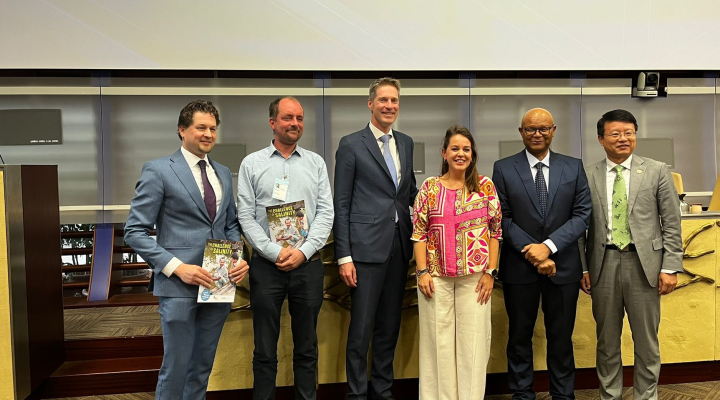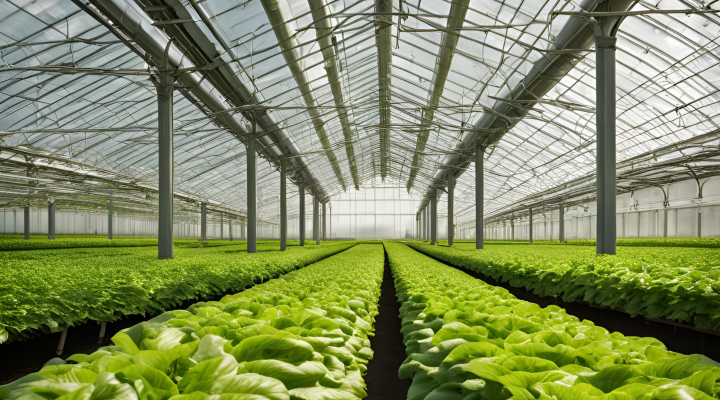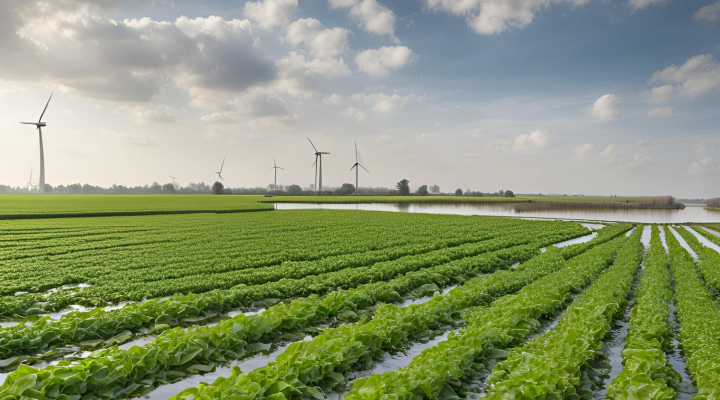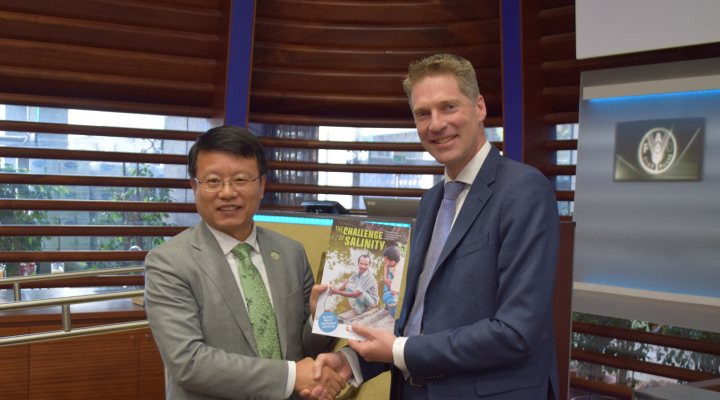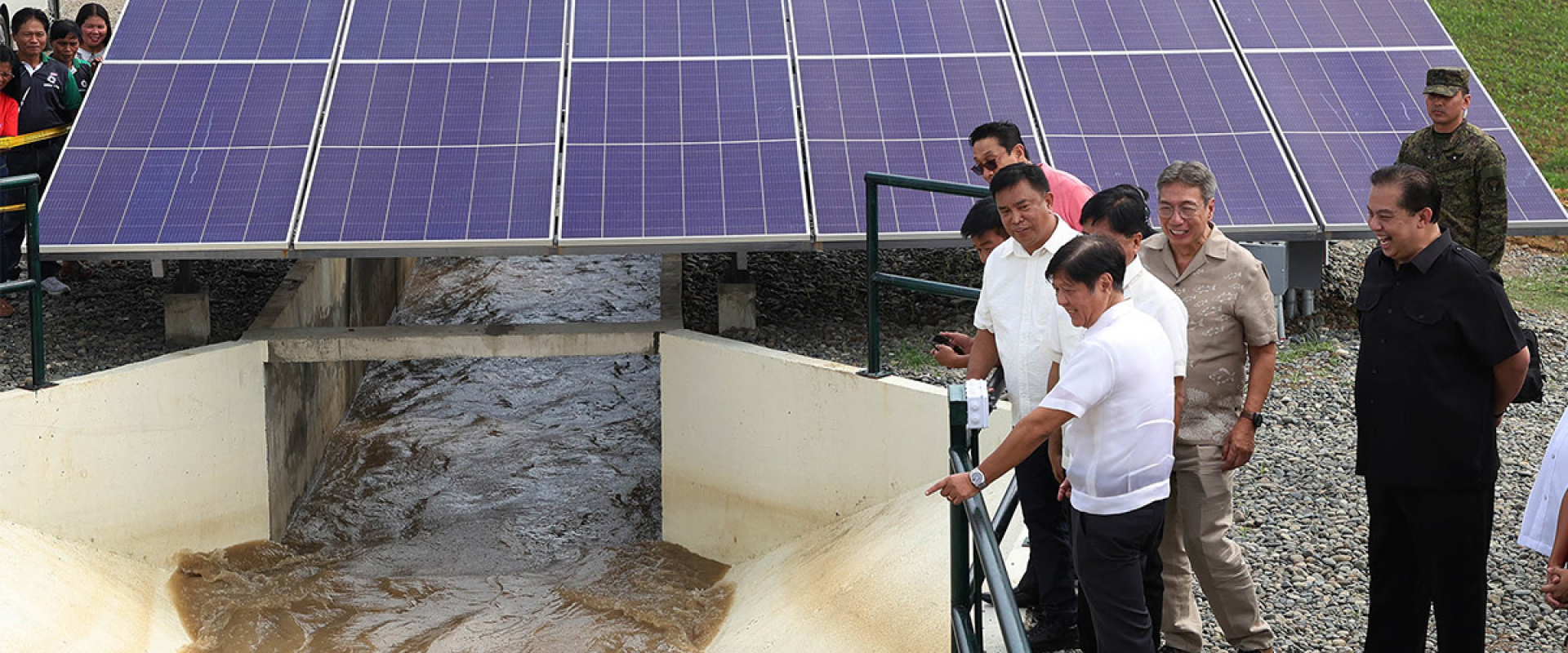
Dutch solar irrigation technology takes root in the Philippines
Agriculture in the Philippines faces growing difficulties as climate change alters traditional weather patterns. Longer wet and dry seasons are making rice harvests increasingly unpredictable. Rice cultivation is particularly water-intensive, requiring around 7,500 cubic metres of water per hectare per harvest. On average, Filipino farmers manage only one harvest a year, producing about 3.3 tonnes per hectare. This limited yield means that the country relies on rice imports, which amounted to approximately 730,000 metric tonnes in 2024.
Introducing smart irrigation
In response to these challenges, Technimex Water Management / Dutch Flow Technology, a Dutch company, recently introduced the Smart Solar Pump Irrigation System (SPIP) in the Philippines. The system combines solar energy with digital technologies such as sensors and intelligent software. It irrigates crops only when needed and is aligned to their growth cycle, ensuring more efficient use of water and energy.
By enabling farmers to irrigate throughout the year, the system has the potential to increase the number of harvests and improve yields per hectare. This could promote greater food security and reduce dependency on imported rice.
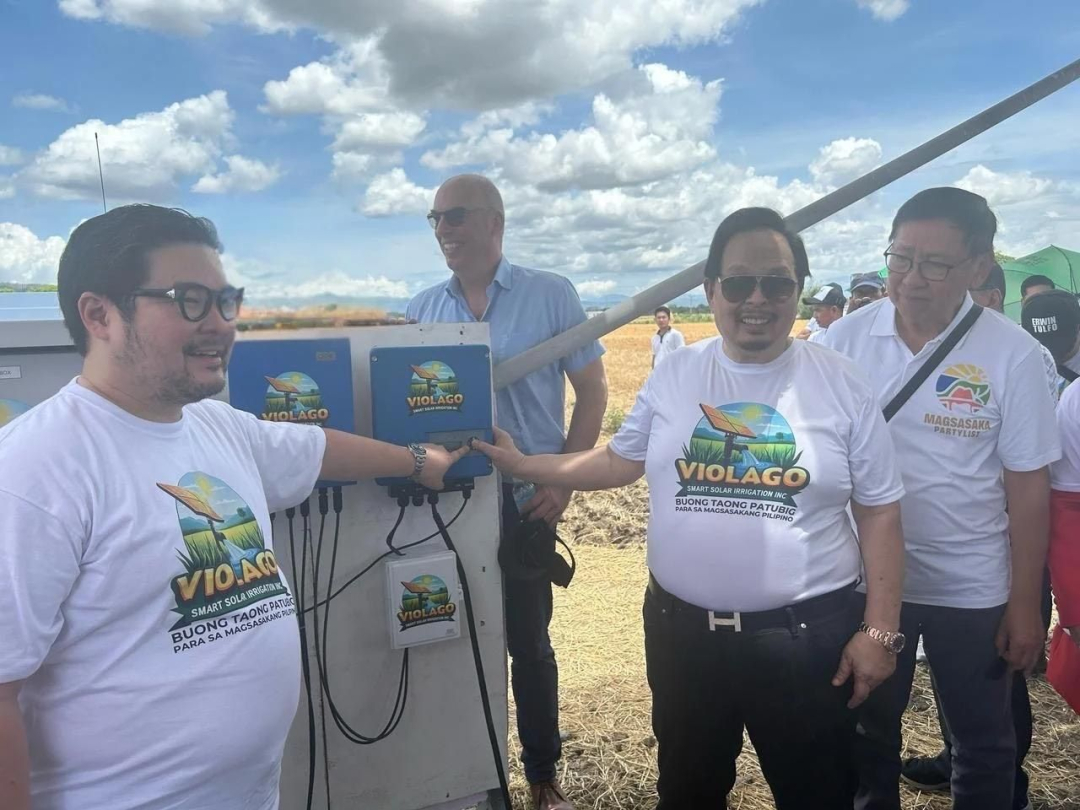

Environmental and community impact
The system draws water from shallow, self-replenishing wells or surface sources and operates entirely on solar power, making the need for diesel or electrically powered pumps redundant. Apart from greater water and energy efficiency, it also reduces methane and nitrogen emissions, thus supporting climate mitigation efforts.
In addition, the technology can adjust the pH of acidic water and distribute nutrients directly through irrigation, reducing reliance on chemical fertilisers. During the wet season, surplus electricity generated by the solar panels can be used in rural communities or sold back to the grid, creating wider social and economic benefits.
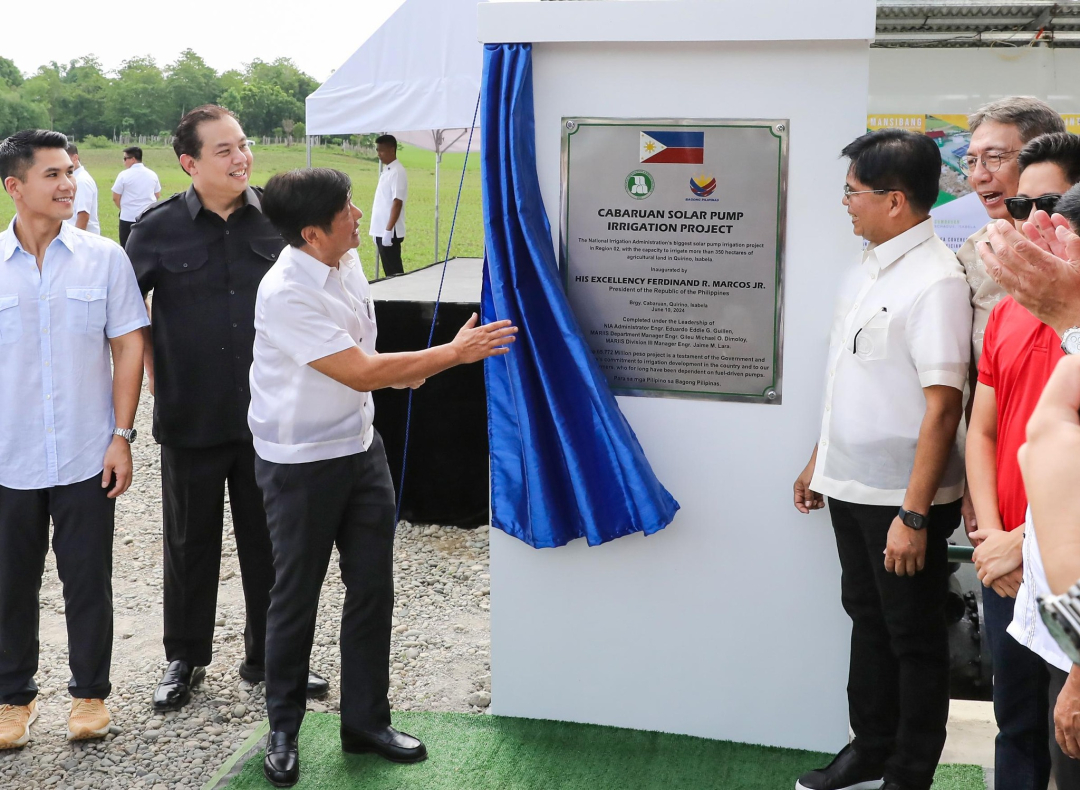

Part of a broader effort
The Philippine Government has invested heavily in solar-powered irrigation projects to modernise agriculture and adapt to environmental change. In 2024, President Ferdinand R. Marcos Jr. inaugurated the Cabaruan Solar-Powered Pump Irrigation Project in Isabela, the country’s largest solar-powered irrigation system at the time. It irrigates 350 hectares of rice fields, benefiting nearly 240 farmers.
The Cabaruan Solar-Powered Pump Irrigation Project initiative is part of a wider programme: dozens of solar-powered irrigation systems have already been installed in different regions, with many more under construction. These projects share the common goal of securing long-term resilience in food production by managing water and energy more effectively.
Looking forward
The Dutch-designed Smart Solar Pump Irrigation System illustrates how international cooperation can support sustainable farming practices in regions heavily exposed to climate risks. By integrating renewable energy with precision irrigation, the system shows how technology can help farmers adapt to changing conditions while addressing both food security and environmental concerns.
Sources: https://pco.gov.ph/ Presidential Communications Office – Balong Pilipinas and https://dutchflowtech.com/




